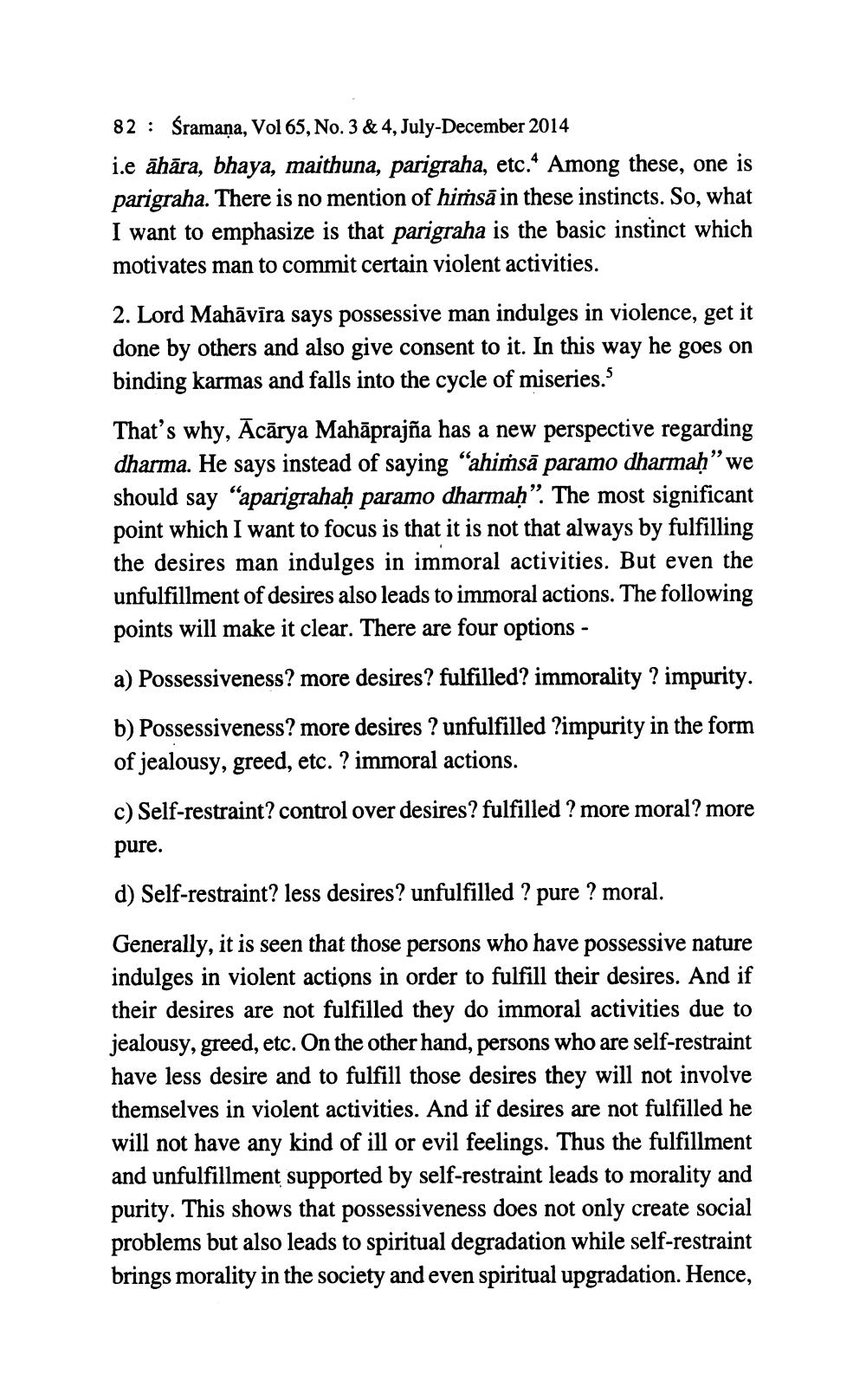________________
82 : Sramaņa, Vol 65, No. 3 & 4, July-December 2014 i.e āhāra, bhaya, maithuna, parigraha, etc. Among these, one is parigraha. There is no mention of himsā in these instincts. So, what I want to emphasize is that parigraha is the basic instinct which motivates man to commit certain violent activities.
2. Lord Mahāvīra says possessive man indulges in violence, get it done by others and also give consent to it. In this way he goes on binding karmas and falls into the cycle of miseries. That's why, Ācārya Mahāprajña has a new perspective regarding dharma. He says instead of saying “ahiṁsā paramo dharmaḥ" we should say “aparigrahaḥ paramo dharmaḥ”. The most significant point which I want to focus is that it is not that always by fulfilling the desires man indulges in immoral activities. But even the unfulfillment of desires also leads to immoral actions. The following points will make it clear. There are four options - a) Possessiveness? more desires? fulfilled? immorality ? impurity. b) Possessiveness? more desires ? unfulfilled ?impurity in the form of jealousy, greed, etc. ? immoral actions. c) Self-restraint? control over desires? fulfilled ? more moral? more pure. d) Self-restraint? less desires? unfulfilled ? pure ? moral. Generally, it is seen that those persons who have possessive nature indulges in violent actions in order to fulfill their desires. And if their desires are not fulfilled they do immoral activities due to jealousy, greed, etc. On the other hand, persons who are self-restraint have less desire and to fulfill those desires they will not involve themselves in violent activities. And if desires are not fulfilled he will not have any kind of ill or evil feelings. Thus the fulfillment and unfulfillment supported by self-restraint leads to morality and purity. This shows that possessiveness does not only create social problems but also leads to spiritual degradation while self-restraint brings morality in the society and even spiritual upgradation. Hence,




